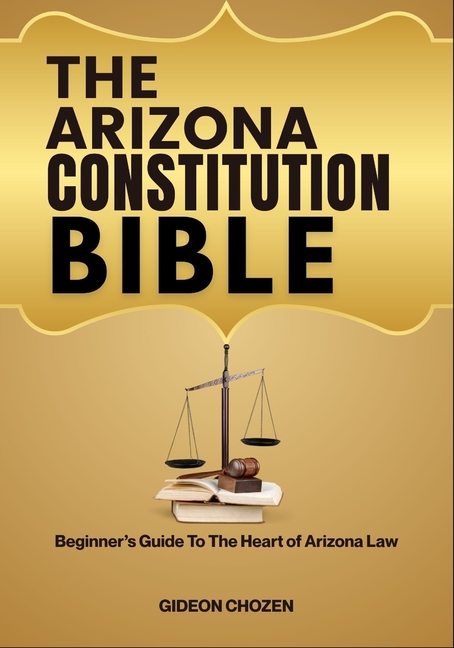Description
Rights: A Broad and Explicit Declaration
The Arizona Constitution includes a comprehensive Declaration of Rights in Article II, which serves as the state's equivalent to the federal Bill of Rights. However, the state's protections often go further, emphasizing civil liberties, equality, and individual autonomy in ways that sometimes exceed federal minimum standards.
For example, the Arizona Constitution explicitly protects the right to privacy, the right to bear arms, and the right to open courts and legal remedies. It also affirms freedom of speech, freedom of religion, and the right to assemble and petition the government, making clear that these freedoms are guaranteed regardless of the political climate.
Importantly, Arizona's rights provisions also reflect its regional and historical context. Provisions related to eminent domain, labor protections, and water rights speak to the unique economic and environmental conditions of the American Southwest. The Constitution also prohibits discrimination based on sex and affirms that "no special privileges or immunities shall ever be granted," underscoring a commitment to equal protection under the law.
Governance: Structure, Accountability, and Balance
The Constitution establishes a government structured around the separation of powers into three coequal branches: the legislative, executive, and judicial. Each branch is granted defined responsibilities and checks upon the others, ensuring that no single entity can dominate state governance.
- The legislative branch, comprised of a bicameral legislature (House and Senate), is responsible for creating laws, appropriating funds, and representing the interests of the electorate.
- The executive branch, headed by the Governor, carries out the laws and administers state agencies. Arizona's executive branch is notably plural, meaning that key officers such as the Attorney General and Secretary of State are elected independently rather than appointed by the Governor.
- The judicial branch interprets laws and ensures their alignment with the Constitution. Arizona employs a merit-selection process for appellate judges, designed to balance independence with public accountability.
- In addition, Arizona's Constitution emphasizes transparency, ethics, and responsibility in governance. Provisions such as term limits, open meeting laws, and disclosure requirements are all designed to maintain public trust and reduce corruption.
Product Details
- Jun 17, 2025 Pub Date:
- 9798288456589 ISBN-10:
- 9798288456589 ISBN-13:
- English Language




